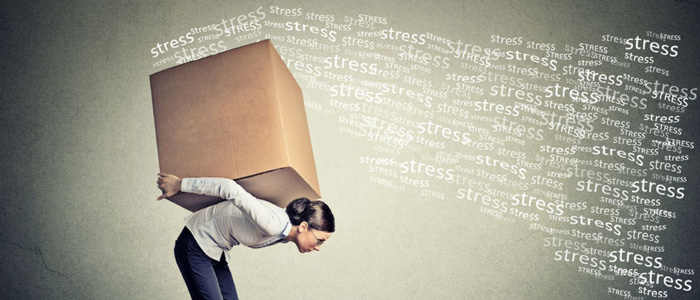The term stress tends to be used broadly to refer to all kinds of unpleasant feelings. Generally though we agree that when we say the word ‘stress’ we are talking about that feeling of anxiety and panic that prevents us from concentrating or relaxing and which causes us to gradually become miserable.

This is actually just one type of stress though, called ‘chronic stress’. Here we will look at what the other kinds are and how you can tell which one you might be dealing with at any given time.
Acute Stress
The ‘main’ type of stress is not chronic stress but rather acute stress. And what acute stress describes is the type of stress you experience when you are suddenly presented with a stressful occurrence or news that you need to deal with immediately.
Say for instance a big dog jumped out in front of you or someone threatened to punch you. Either way, you would enter the ‘fight or flight’ response and this is essentially all that acute stress is.
This is the feeling that we get when our hands start trembling, our heart rate and blood pressure increase and we find ourselves feeling scared and panicked. It also happens to be the result of our body being flooded with numerous specific hormones/neurotransmitters. They are: adrenaline, norepinephrine and cortisol.
Other than the shaky hands, this reaction makes our blood thicker so it can clot if we sustain an injury, it makes our muscles contract so that we become stronger and it makes us more aware and alert of things going on around us so that we can respond quickly and effectively to deal with danger. Unfortunately though, this kind of stress isn’t always useful because it also tends to prevent us from performing well in some situations – like when we need to give a speech or perform well in an interview.
All the other different types of stress are related to this single reaction.
Chronic Stress
As you might have already figured out, chronic stress is what happens when you take acute stress and drag it out for hours, days or months.
So in the wild, acute stress was what happened when you were confronted by a predator or a fire. Today though, it’s what happens when you’re confronted with your bank balance. Now eventually you will escape a predator or get eaten meaning that in the wild, acute stress would very rarely turn to chronic stress. Unfortunately though, you can’t outrun your bank balance (I’ve tried) meaning that this source of stress is going to remain ever-present causing you to experience the effects of cortisol, adrenaline and norepinephrine for extended periods of time.
This is when it can become unhealthy as it means you will be tense for long periods of time, you will have high blood pressure and a high heart rate and you will ultimately fatigue your adrenal glands. Another effect of the different types of stress is to suppress your immune system and digestive system in order to put more priority on the muscles and brain – again this is helpful in the short term but potentially dangerous in the long term as it leaves you susceptible to illness.
Eustress
What’s important to realize though is that not all the different types of stress are bad – it all depends on the context.
Eustress is what you call stress that isn’t going to cause health issues but in fact is actually good for you overall. Eustress can be chronic or acute as well meaning that there are four main different types of stress.
So how can stress be a positive thing? Well one scenario to imagine would be that you’re revising for an exam. Too much acute or chronic stress and you’ll struggle to focus, to sleep and to perform so this definitely isn’t a good thing.
On the other hand though, if you were to experience absolutely zero stress, then you might well find that you actually performed worse than you would if you have a bit of stress. Why? Because it’s stress that motivates us to revise, that encourages us to memorize what we learn and that generally makes us work hard.
Similarly, as mentioned, a little stress in a dangerous situation will make us more alert and more focused as well as improving our physical capabilities. The long and the short is that we’ll be more likely to win a fight and more likely to outrun an attacker so that is definitely an acute form of eustress.
Stress by Situation
You can also define the different types of stress in a different way too by focusing on what it is that causes them. For example, you can consider ‘social anxiety’ and ‘vocational stress’ to both be forms of stress but to be slightly different.
Ultimately though, these different types of stress are still caused by the same underlying mechanisms and would be identical to a psychologist doing a brain scan. Within reason…
Every Stress Is Different
Note as well that the precise makeup of any stress reaction is going to be somewhat unique – both defined by the individual and their current mental state. For instance, someone could be very stressed but also somewhat happy. Or they could be a little stressed and a little sad. Here the neurochemistry would be slightly different, especially bearing in mind that different neurotransmitters interact in unique ways.
In reality then, you could say there are a million different types of stress and that no two are the same. This is why the best way to manage stress will likely depend on the individual as well as their precise circumstances.
For all practical purposes though, most psychologists agree that there are four main different types of stress. Of this, it is chronic stress that is the main cause for concern.



